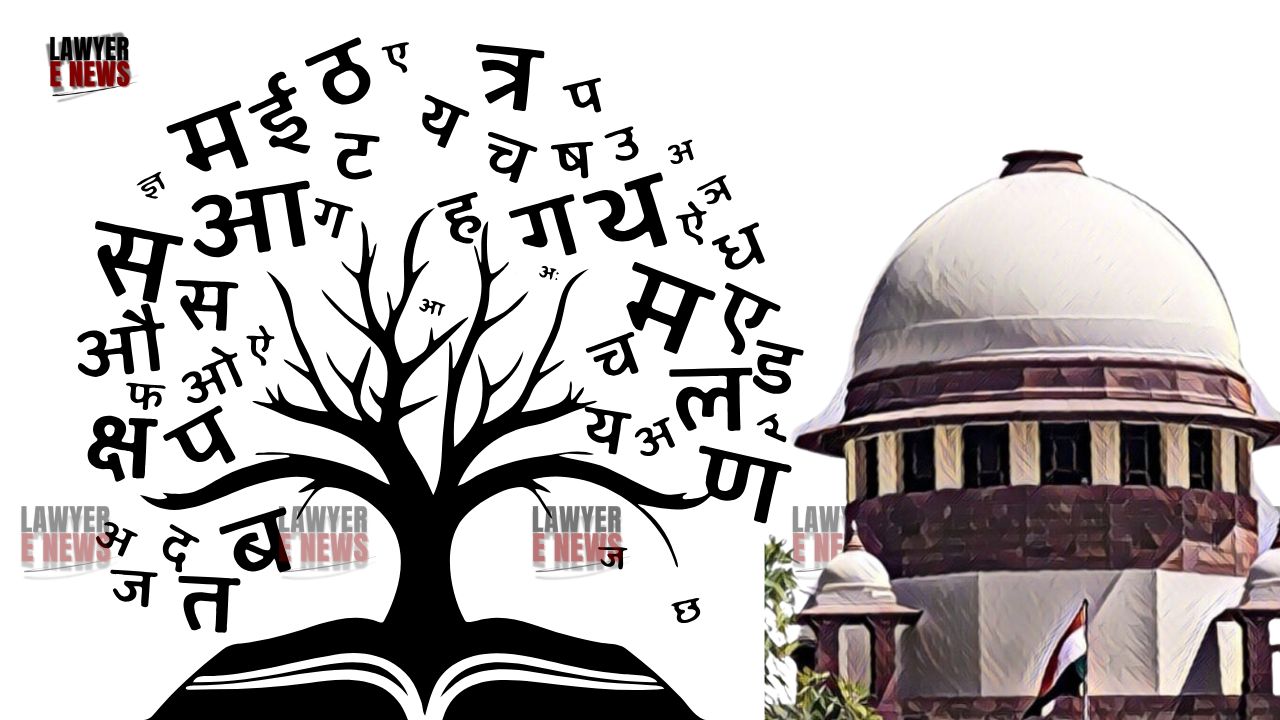-
by Admin
15 February 2026 5:35 AM



On November 4, 2024, the Supreme Court of India refused to entertain a Public Interest Litigation (PIL) that sought hearings in the Supreme Court to be conducted in Hindi, challenging the validity of Article 348(1) of the Constitution. This article mandates that all proceedings in the Supreme Court and High Courts be conducted in the English language. The bench, comprising Chief Justice of India (CJI) DY Chandrachud and Justices JB Pardiwala and Manoj Misra, dismissed the PIL, emphasizing the constitutional basis for the use of English in higher judiciary proceedings.
The PIL, filed by petitioner Kishan Chand Jain, called into question the constitutionality of Article 348(1), arguing that it posed a linguistic barrier, effectively limiting access to justice for those who were not proficient in English. The provision under scrutiny has been part of the original text of the Indian Constitution since its inception.
CJI DY Chandrachud questioned the rationale behind the petitioner’s specific demand for Hindi, given the multilingual fabric of the nation. He remarked:
"Why only Hindi? We have appeals and SLPs (Special Leave Petitions) which come to this court from all states. Should we now be hearing parties in every language recognised by the Constitution? How does this work?"
This pointed query highlighted the impracticality of adopting multiple languages for Supreme Court proceedings, considering the diversity of languages spoken across India.
The CJI further underscored the foundational nature of Article 348(1):
"How can you challenge the validity of Article 348(1) of the Constitution? It's part of the original Constitution."
These observations stressed that Article 348(1) was embedded in the Constitution to maintain uniformity and coherence in the legal system.
The petitioner contended that requiring English as the language for court proceedings creates a significant barrier, preventing non-English-speaking litigants from effectively accessing the judicial system. This, he argued, amounted to a denial of justice to a significant portion of the population.
Despite these arguments, the bench remained unconvinced and concluded that the petition lacked merit. The Supreme Court dismissed the PIL with a succinct remark:
"The writ petition is lacking merit and is accordingly dismissed."
By dismissing the petition, the Court affirmed that Article 348(1) remains a crucial and valid part of the Constitution, designed to ensure consistency in judicial processes at the highest levels.
This decision reiterates the importance of maintaining English as the language of proceedings in the Supreme Court and High Courts, upholding Article 348(1) as a fundamental provision that supports judicial uniformity. The judgment also underscores the practical challenges involved in adopting multiple languages in the apex judiciary of a linguistically diverse nation like India.
Date of Decision: November 4, 2024
Kishan Chand Jain Versus Union of India and Anr.
